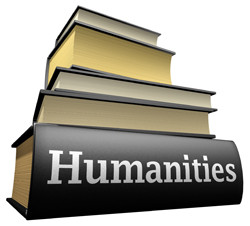Humanities research matters!
The European Research Area (ERA) isn't only about science and technology, but also about humanities — from arts and language to anthropology and philosophy, and from history and religious studies to culture & media studies. These are helping Europeans understand their identity, they support the European integration process, and they also inform and enable responsible and sustainable innovation. This has been the mission of the Humanities in the European Research Area (HERA) initiative, which has launched projects in many fields relevant to heritage, politics, culture and society. One of these most recent efforts was the 'HERA Joint Research Programme' (HERAJRP), which aimed to fund projects in cultural dynamics, and in creativity and innovation. To launch the programme, HERAJRP organised a conference in Austria on 'Humanities as a Source of Creativity' and 'Cultural Dynamics: Inheritance and Identity' to further the project's aims. It conducted several workshops and organised a call for project proposals across Europe, attracting over 200 interested parties who wanted to finance their transnational projects. Out of these, reviewers approved 19 proposals that would benefit from around EUR 16 million in funding. Ensuring wise utilisation of the approved funds, the project team monitored financial expenditure and evaluated research progress. In addition, part of the HERAJRP team established the HERAJRP Knowledge Transfer Advisory Committee (KTAC) to increase awareness about the importance of humanities research beyond academia. This involved networking events and knowledge transfer activities that brought together academic and non-academic partners from more than one HERAJRP project. In the summer of 2013, the project's main results were presented to a wide audience at the Humanities Festival in London. Finally, the 19 HERAJRP transnational projects resulted in numerous academic publications. The final programme brochure was prepared in 2014. It offers an overview of the main achievements of the HERAJRP projects, as well as a description of the programme and the governing and implementing bodies. Case studies included in the brochure highlight knowledge transfer and exchange activities within a number of the projects, showing the bigger picture of HERA funding that extends beyond academia.
Keywords
Humanities, cultural dynamics, European Research Area, joint research, knowledge transfer



